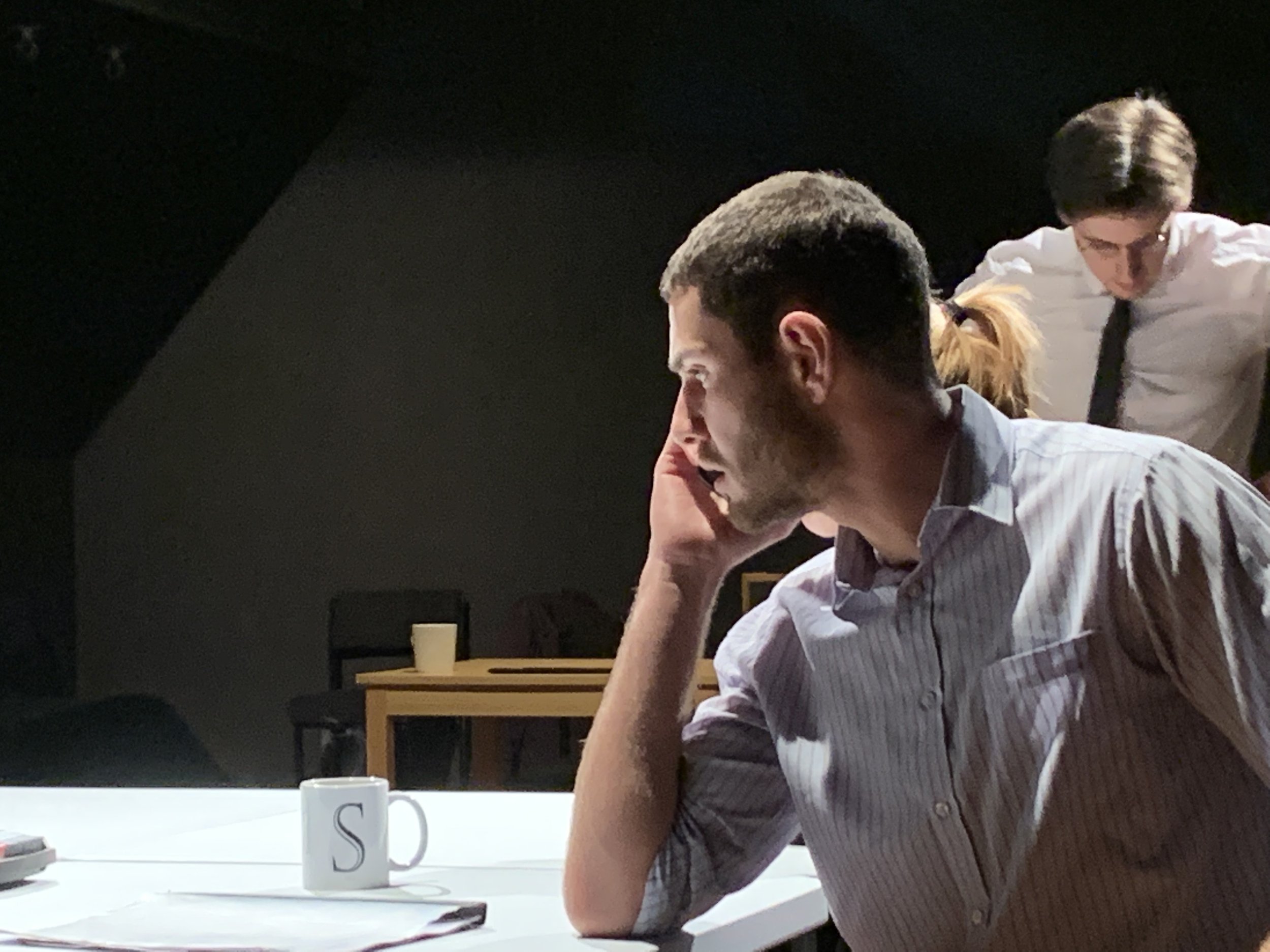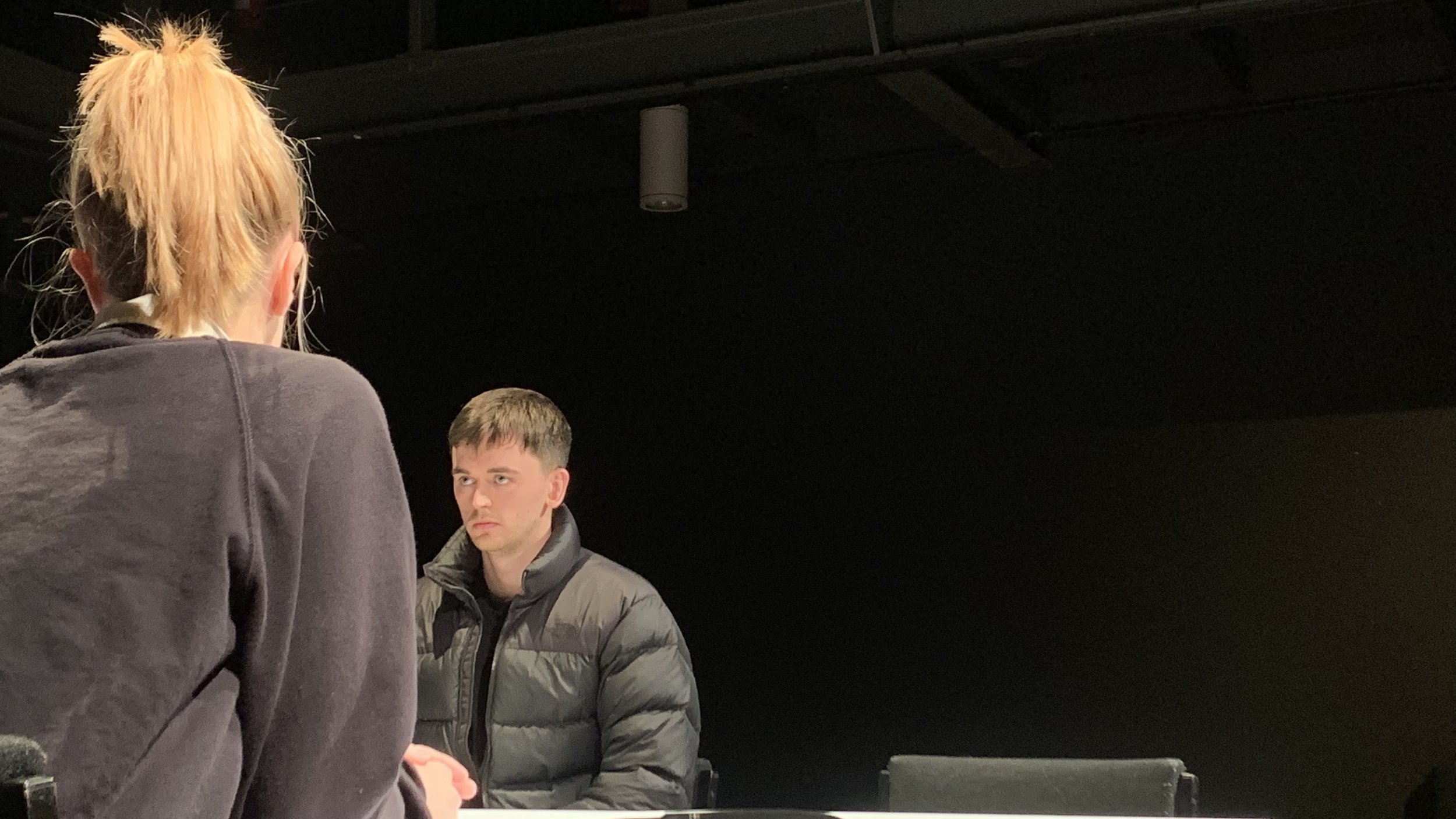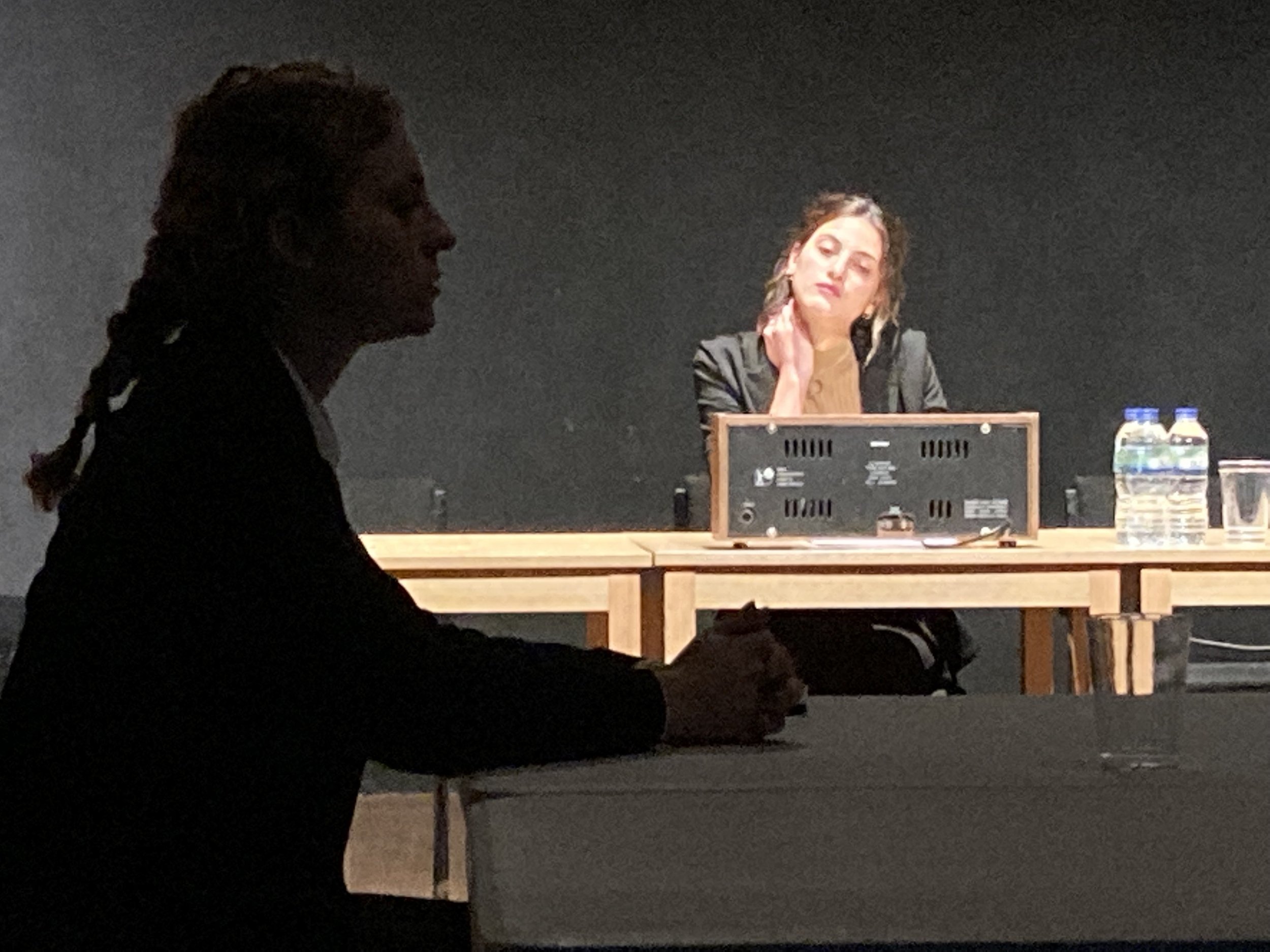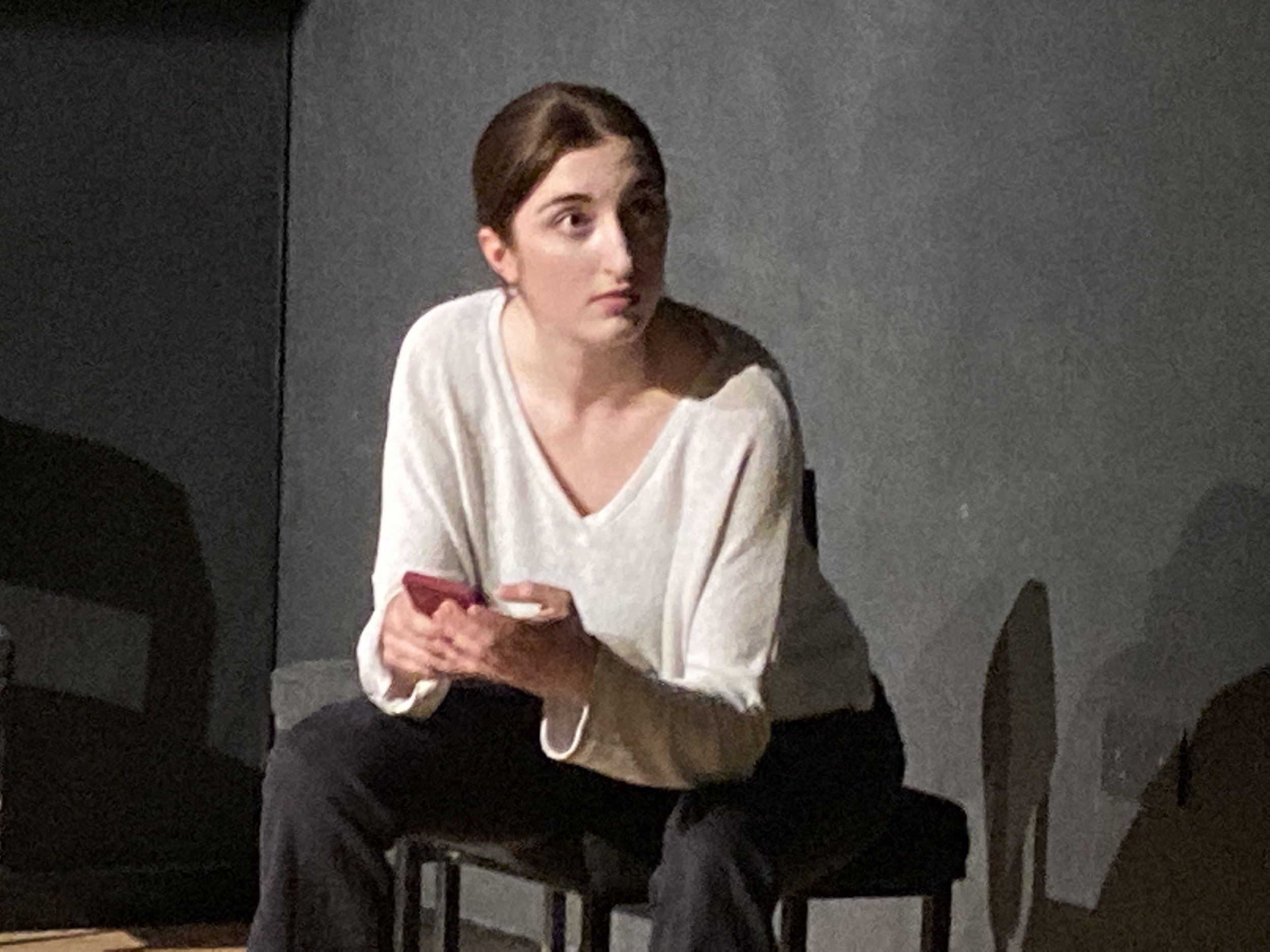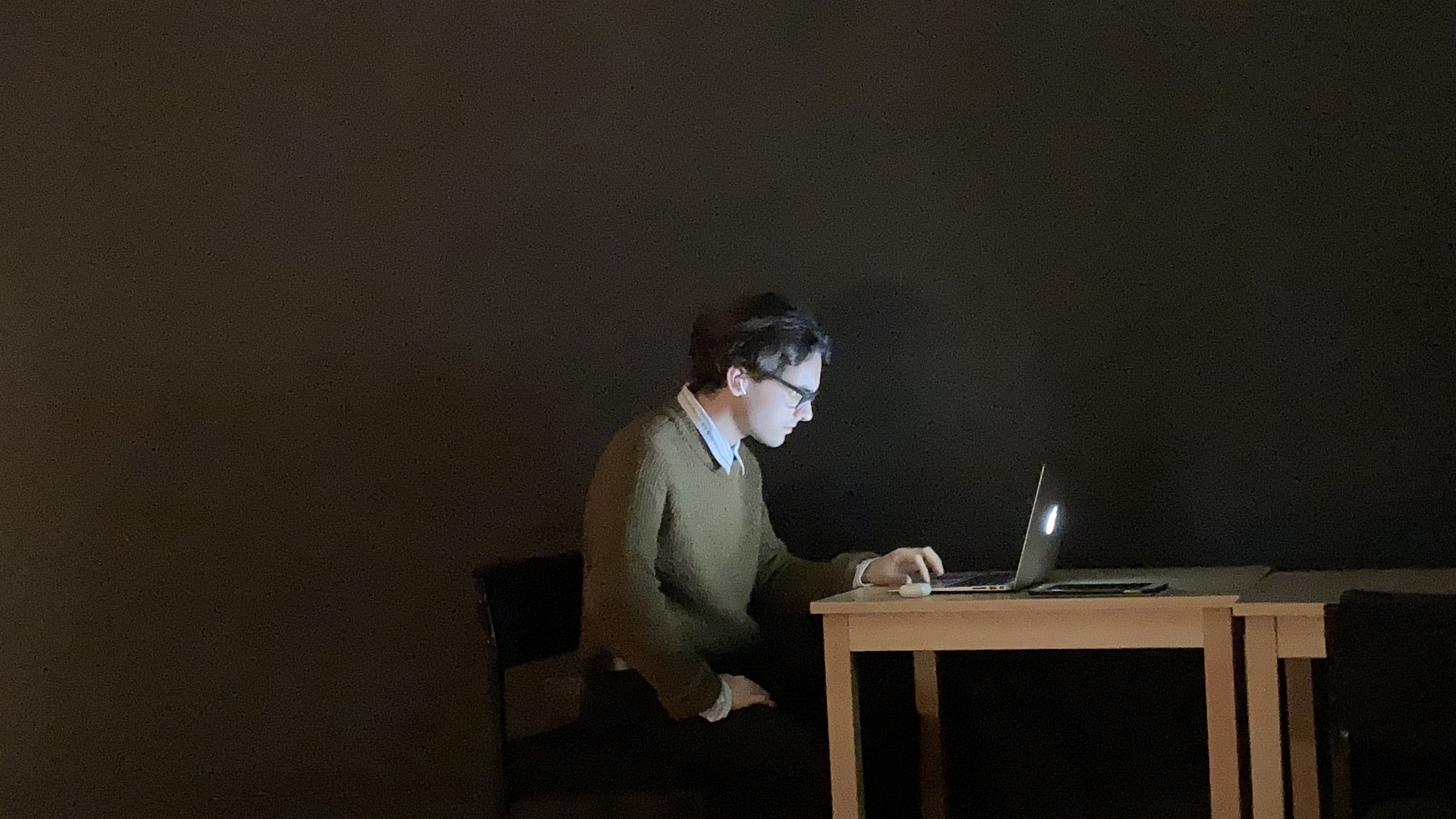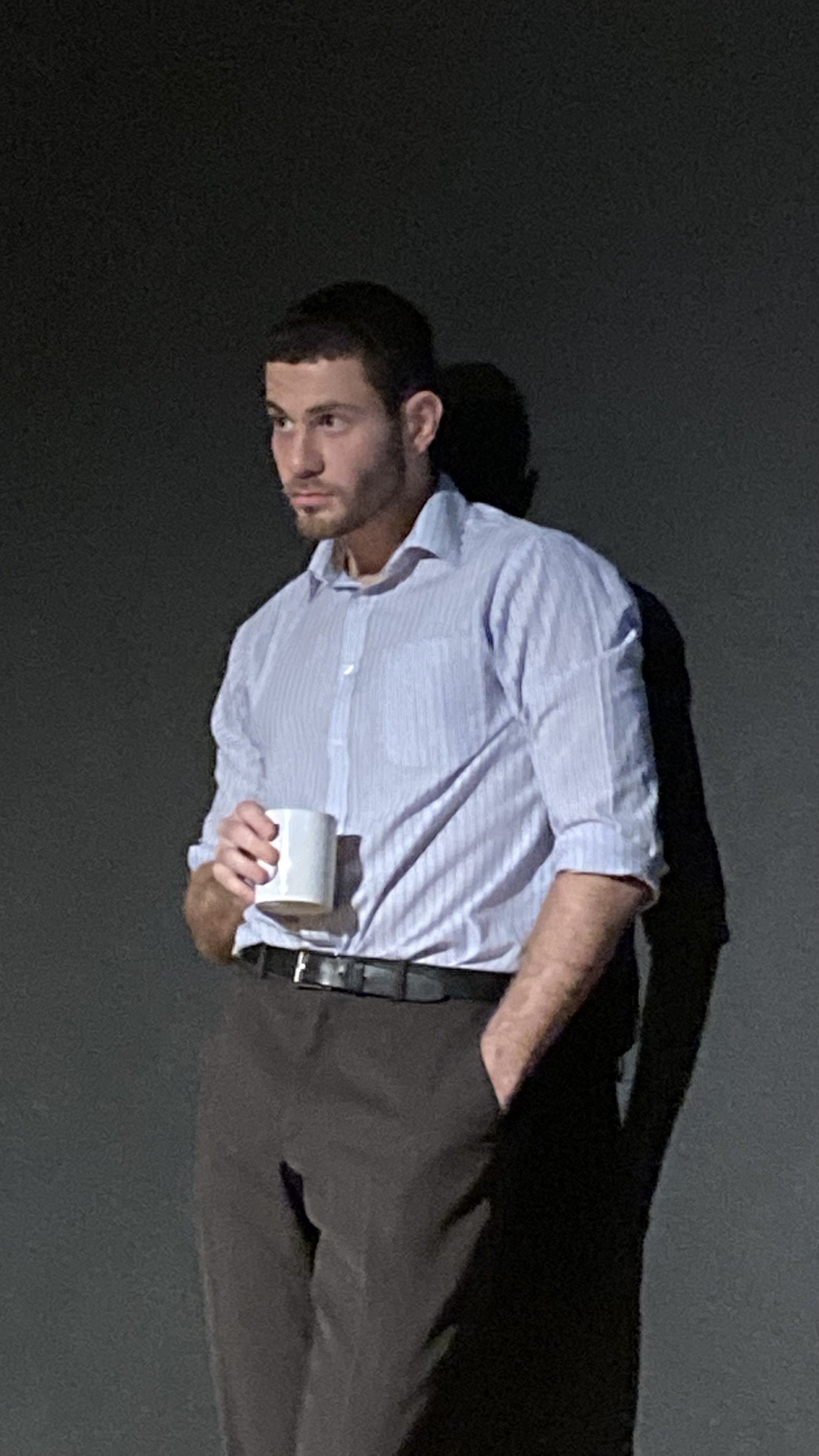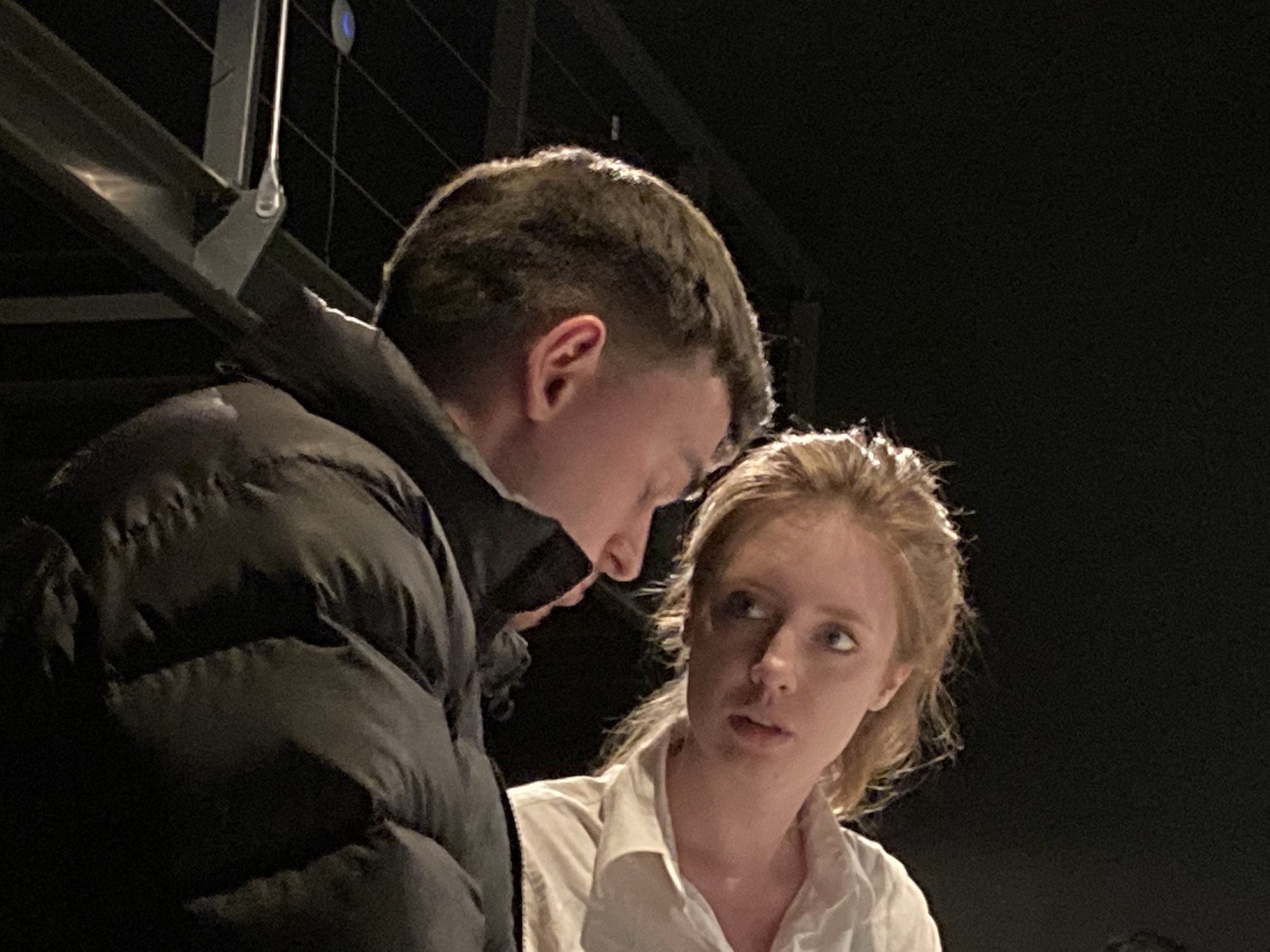The Interview
An adaptation of the Netflix series Criminal
Oxford School of Drama, Dir Kristine Landon-Smith
Note from Director
It was a pleasure to return to The Oxford School of Drama and work with the 3rd Year BA students on The Interview. I had always thought that the episodes of the Netflix series Criminal would make a wonderful theatrical adaptation. I chose two episodes from the French series and one from the English. Adapting the work from the small screen to stage seemed quite effortless and indeed my hunch was right as the works seem almost that they could have been written for theatre. It was a pleasure to try to capture the filmic flow of the original and try to sustain the tension created in each episode in front of a live audience. It proved to be wonderful material for the 3rd years as it demanded precision, clarity and observance of rhythm – the actors listened intently to each other and the work ignited.
Reflection 1
Kristine’s process has been invaluable in my actor training. The process has taught me a great amount from the importance of playing from self (with pleasure) to listening actively with other actors in the space finding complicité.
Working within an intracultural methodology became a real comfort for me, accepting that playing from self with other fantastic actors is, and always will be, enough. Instead of feeling I needed to hide or somehow place aside my cultural heritage when I act, I was, with Kristine’s guidance, free to bring my unique qualities to the forefront of the practice.
A breakthrough moment for me in the rehearsal process was the realisation that the person I am outside the rehearsal room should always be the same individual I bring into the rehearsal room. After all if I’m not playing from self? Where the hell am I playing from?!
I will take a lot away from this work with Kristine. It was a pleasure to go back to myself.
Reflection 2
This process has been invaluable. It has reignited the joy of playing for me. The affirmation of the idea that I am enough is something I am going to take forward for every single project I have in the future. The idea that it really is as simple as just finding the pleasure to play and then revelling in that whilst playing and bouncing off my fellow actors, it’s so ridiculous that it’s only kicked in now! But boy am I glad it’s kicked in. It’s such a relief to enjoy playing again.
Reflection 3
While working in Farsi I have discovered a profound connection. The text sits deeper in me while the thoughts and intention pour out of me, fluidity without filter, especially when working in improvisation. Using Farsi has become a way to link in, a bridge between the text and myself which gives me a stronger sense of ownership and embodiment.
It is a method of working where I can deep dive into myself, feeling more alive, open, playful, unlocking my sensitivity. Working in Farsi has strengthened my artistic spirit and confidence, allowing me to trust, believe and use my sensitivity with precision.
Our project together was my first time using Farsi as a tool and it certainly won’t be my last. I believe this sense of identity and freedom to play are the products of what Kristine likes to call, ‘coming to self’ as an actor, ultimately allowing me to play with and release a more extraordinary version of myself.
Reflection 4
- Native Language as a Way In: I've used Italian before with some tutors, but never in this way. Using my first language helped me bring the text back to myself at times when it felt like I was starting to lose my grip on the words I was saying. The thing about being bilingual that no one understands is that it's not like my brain is set in Italian mode and then it switches on to English mode: it's all on the same channel! When I am thinking, the two languages mix up together in a way that creates a strange third language. This is why I found the work useful, because I was able to express this merging of two parts of myself that goes on in my head into the rehearsal process and therefore it made it feel easy and more accessible to me.
- Clicks and Complicité: A great way for me to get to that point of openness and freedom. We are always taught that everyone might need different kinds of prep when a show is about to start and I think I have found what consistently works for me. That is finding the complicité with the rest of the company in order to focus only on them and their responses, everything else (doubts, pressure, thoughts on what the character would do) is shut out of the picture and all that matters is that connection with everyone else in the room.
- Rhythm, Understanding a Different kind of Listening: Once the complicité is found, the work can finally take off and I started feeling that rhythm that Kristine was on about since day 1. This very rhythm isn't prepared or decided upon, it just springs out of every actor once everyone is present and listening to each other, and it can be different each time!
- The Art of not Giving a Shit: Over the course of the training it's easy to focus exclusively on the stuff we are doing wrong because after all that's why we went to drama school in the first place, to become better artists. However, that hyper attention to our weaknesses as actors can be deceiving, as it can easily lead to self-consciousness, which to me is death for an actor. This is when we are always living in the past (thinking of what we've done wrong or which note we didn't take well) or in the future (preparing exactly how to do or say something) because it's too scary to be in the present and alive with all the other actors on stage. That inevitably leads to focusing only on ourselves, depriving our actor self of the complicité that is necessary to start listening and creating something beautiful.
Reflection 5
I walked into the first rehearsal run down and fatigued with feelings of inadequacy and smallness and left feeling full and empowered. I found such ease by the end, such pleasure in stillness and such power in leading from a sense of self as opposed to a veil of the ‘character’. The confidence it has given me moving forwards into projects, as well as thinking about graduating and walking into new spaces and scenarios where it will be essential to have that rooting sense of myself as a performer and what I can bring to a room. The experience has been transformative for me as a human and an actor (which you have reminded me are the same thing)!
Reflection 6
What I loved from the very beginning was using ourselves as the foundation. Everything comes from us. I am me in this space, playing. Being myself in performance was something I was previously quite scared to do. You don’t think you are enough. But you are enough. Everything past ourselves is just play.
Surrendering to the moment should be effortless. And it is effortless, when you banish the expectation to get anywhere. There’s nowhere to go, no mark to “hit” - just what you find between the other actors. But what is important is to find that play! To be constantly seeking the complicité - the ability to go anywhere with each other, to let go and see where that takes you. It takes guts to do that, but the results are far more freeing and interesting. The complicité allowed me to do the most obvious thing of all: listen.
I have never seen as many eyes on stage than I did during our production - free, available, playful eyes which were open to anything that came their way. I love finding small moments of connection with others in the work and in the past has been difficult.
There’s nothing to “think” about. How can you think a thought you’re supposed to be thinking? - I just loved this.
In essence, your method got us out of our heads quickly while having fun. It brought us into the space and allowed us to do the most obvious of things: see and listen to each other. The spirit of the production embodied play more than anything we’ve done to date.
